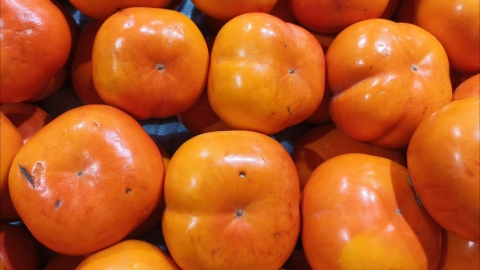What should not be eaten with persimmons?
Generally speaking, there is no strict rule about "what persimmons cannot be eaten with." However, caution should be exercised when consuming them with kelp, white liquor, sweet potatoes, crabs, spinach, etc., and it is advisable to avoid consuming large quantities of these foods together. The specific reasons are as follows:

1. Kelp
Kelp contains high levels of calcium, while persimmons contain tannic acid. Tannic acid can combine with calcium to form insoluble compounds, which not only affect calcium absorption but may also cause gastrointestinal discomfort, such as gastric stones.
2. White Liquor
Eating persimmons after drinking alcohol or consuming them together may irritate the gastric mucosa. When tannic acid in persimmons comes into contact with alcohol, it may produce substances that are detrimental to digestion and cause stomach discomfort.
3. Sweet Potatoes
Consuming persimmons together with sweet potatoes may lead to gastrointestinal discomfort. Sweet potatoes produce large amounts of carbon dioxide gas in the stomach, and the tannic acid in persimmons may react with it, increasing the burden on the stomach and causing bloating and stomach pain.
4. Crabs
Persimmons contain a high amount of tannic acid, while crabs are rich in protein. When consumed together, tannic acid may combine with protein to form coagulated substances that are difficult to digest, potentially causing indigestion or symptoms such as abdominal pain and nausea.
5. Spinach
Spinach contains oxalic acid, which can combine with tannic acid from persimmons in the intestines to form insoluble precipitates like calcium oxalate. These precipitates may interfere with the absorption of calcium and other minerals. Long-term and large-scale consumption of these foods together may lead to calcium deficiency.
In daily diets, it is advisable to separate the consumption time of these foods and avoid simultaneous intake to reduce potential health risks.






